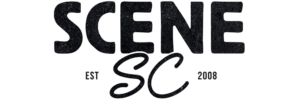Alarm Drum play New Brookland Tavern November 21 with Ivadell, Museum Mouth, and Junior Astronomers. Facebook Event
With their debut EP out in August, Alarm Drum have quickly made a name for themselves with their well crafted debut release. The EP blossoms with an array of influences including bands and artists who focus on arrangements and evoking emotion, an area where their debut EP excels. The dreamy album still borders on indie rock, though with a few tweaks they could easily head down a Tame Impala path. They don’t seem like they’re interested in following in anyone else’s footsteps, but combining their own array of influences into what best suits a project.
To understand a band, you must first understand where they’re coming from. We caught up with Alarm Drum and chatted about some of their influences and how the band got started.
What was it like when you started playing music together? Was it kind of a natural thing that happened or was it more thought out?
Ian: It was definitely a natural thing. Andrew and our old drummer started playing together early in high school, Seth joined a bit later, and I was kind of the little brother that wanted to play but they never let me in. Seth didn’t show up one day so I asked if I could cover for him playing fake keys bass, and they finally said yeah. We did like gothic, post punk kinda jams for a long time and our first demo had some of that in it. Nobody can have that anymore cause it sucks.
What’s the songwriting process like for Alarm Drum? Does someone come in with a basic idea or is it more of a building block kind of process?
Andrew: Ian and I pretty evenly initiate songwriting; one of us will have a simple idea, like a chord progression, riff or melody, which we usually flesh out between the two of us or with the full band. So a lot of our songs come from very simple means. At the same time, songs will sometimes come from a jam session, and those can start out loose and sprawling before being tidied up and refined.
Ian: We come in with recorded ideas and turn them into songs. We pretty much record and construct each song in the computer as we write, so we end up having to learn them again for playing live. Everything is pretty thought out. A lot of the songs get restructured and basically rewritten like 3 times before we release them.
Seth: It’s quite the process.
I know we talked about this a little bit with the Papa Jazz questions, but who are some of your big influences musically? In what way do they influence you and the music you create?
Andrew: The late eighties is a great period for dreamy music, at that time there were so many great bands in their primes: The Cure, Spacemen 3, The Jesus and Mary Chain, Galaxie 500. When I write music, I want to evoke the same emotions that type of music does in me. Same goes for nineties shoegaze. I’m fascinated by effective pop songwriting with an intricate, layered aesthetic. And recently I’ve been listening a lot of lo-fi pop and outsider music, like Daniel Johnston. I’ve been really interested in the simplicity of some of those songs.
Ian: One of my bigger influences has actually been the movie Spirited Away by Hayao Miyazaki. I feel like the girl in that movie sometimes, like I have the blurry vision of a little baby-like kid. Those types of feelings come out when I make music. When I’m working on synth textures I think about this idea where your eyes are really wet and everything is all blurry, vibrant, and rich. Albums I’m influenced by are uber-produced, but in an artistic way. It’s this really sonically detailed stuff like Rodeo by Travis Scott or Disintegration by The Cure.
Seth: It may sound funny, but some of my early influences consisted of a lot of funk rock. Bands like Infectious Grooves, Primus, early Red Hot Chili Peppers, Faith No More, etc. It was just kinda my thing. I can’t tell you exactly how that plays into Alarm Drum, because the way I’ve approached writing has changed drastically since I began writing with the guys. However, one thing I’ve always kept in my writing, was the heaviness of the bass. As well as the times in our music where the bass gets lost in the track. As it goes off and does it’s own thing. That has become salient in our music I think. One thing I took away from playing a lot of funk and jazz, is that there is something beyond just playing what the guitarist plays. It eventually helped give my style of playing a personality and I made it my own. So I try my best to incorporate that into Alarm Drum.
I’ve talked to so many people who’ve been in the music scene a good while now who are really high on your music. How does that make you feel and do you ever feel any sort of pressure from that?
Andrew: I’m really stoked that people are enjoying the music we make, it’s great to have positive reception. That feeling definitely makes me want to improve the quality of Alarm Drum’s work. I think you always have to try to one up yourself.
Ian: We’ve always wanted to be kind of stand out so it’s cool getting attention. I’m not a person that wants to stand out, but I want my band to stand out. Ever since y’all and a couple other people wrote about us I’ve felt pressure.
Seth: Yeah I think it’s really cool to see people enjoying our music. I think we’ve grown significantly together as a unit over the past two years or so. Both in our live performance, and in the music we write. With that being said, I’m grateful for the amount of positive feedback we’ve received so far.
What were some of the first bands you really got into on your own and kind of dove into their catalogue. Like, in a way that you had found something really special and were kind of obsessive over it?
Andrew: Animal Collective is one of those bands where once you dive into the back catalogue, you never go back. I remember first listening into Animal Collective’s Merriweather Post Pavilion and being stunned by how inventive the production and vocals were, and I listened to it alone for the longest time. Now that I’ve listened to the majority of their records, I tend to listen to the ones that are the farthest away from Merriweather’s sound. For example, my favorite now is probably the earthy, ambient-acoustic style of Campfire Songs, which is quite a change from the upbeat and electronic MPP.
Ian: I had an obsession with Headhunters by Herbie Hancock when I was younger, and I even designed a really shitty shirt with that album cover and got it printed and wore it to school. That album was amazing and it got me into synths. And later after getting into trip hop and other super groovy stuff like Portishead and Del the Funky Homosapien, Andrew finally convinced me to listen to Kanye’s My Beautiful Dark Twisted Fantasy and it was a bit of a revelation for me. So I obsessed over every one of his albums and I realized how an album can be an incredibly constructed, intricate, and human piece of art.
Seth: It took me a while, but the first band I really explored in depth was Neutral Milk Hotel. (Credits to Andrew there). He showed me their second album, In the Aeroplane Over the Sea. I didn’t take it very seriously at first. But after multiple listens, I was hooked. After that, I went straight into On Avery Island. Which is another incredible album. One hell of a band.
Do you enjoy the networking side of being in a band or would you rather just make music and not worry about the other aspects that seem to come with being in a modern-day band?
Andrew: I’ve had a lot of good experiences and met a lot of awesome people when it comes to the “extra” aspects of being in a band, but stuff like that can give me anxiety. Sometimes I feel like I would enjoy just writing music for myself, but I’m always going to want to share my stuff with others.
Ian: Meeting new people is cool but it’s really scary and I wish I could have somebody to do it for me. Pretty sure I give off the wrong impression at least half the time.
Seth: I think it’s cool networking with other bands. I feel like we can learn a lot from one another. It’s a good way to meet new people as well. On the other hand, I can be very introverted at times. So the whole “social” aspect of being in a band freaks me out at times, and it can get pretty awkward. But that isn’t particularly a bad thing. It’s great.




